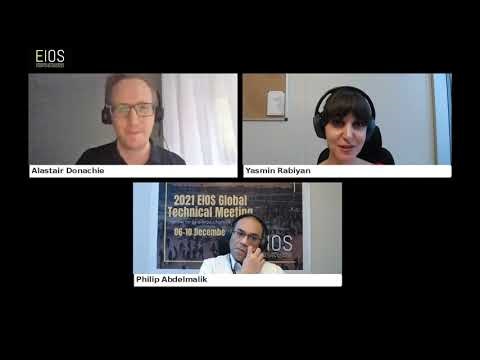
Data for Public Health Intelligence
Tuesday, 7 December 2022
Today, Public Health Intelligence (PHI) experts have more data available to them than ever before. From patient line lists to media reports from every corner of the world, from scientific and lab data to social media feeds, there is an endless range of different types and sources of information.
But what is of relevance for detection of threats, assessment of risks and understanding the situation? How do experts manage wealth of data? What does it need to “connect the dots” and provide intelligence?
On Day 2 of the conference, we explore different types and sources of data, their relevance to public health and attempts to bring them all together. In the “Connecting the Dots”-sessions, we investigate the role of publicly available information and discuss some innovative concepts aimed at discovering and connecting relevant data, insights, and knowledge to provide timely actionable intelligence with two sets of experts in the field.
The session on track 1 is chaired by Alastair Donachie, Epidemiologist and EIOS Categories Consultant at WHO. He is joined by Danil Mikhailov, Executive Director at data.org, who moderates the ensuing panel discussion. The session on track 2 is chaired and moderated by Mala Kumar, Director for Tech for Social Good at GitHub.
Session Recordings
Data for Public Health Intelligence: Connecting the Dots 1
In the “Connecting the Dots”-sessions,
two expert panels look at different types and sources of data, discuss their
relevance for public health and innovative concepts aimed at connecting
data, insights and knowledge for timely, actionable intelligence. On Track 1,
Alastair Donachie and Danil Mikhailov are talking to experts from the European
Commission, the United Kingdom Health Security Agency (UKHSA) and Nextstrain and
explore WHO’s Knowledge Representation and Reasoning (KR2) project.
Chapters
14:30 Poljansek/EC: Composite indicators as a source of contextual information in the EIOS system
32:00 Reynolds/UKHSA: The past, present and future of the UK Health Security Agency’s epidemic intelligence gathering
42:22 Neher/Nextstrain: Real-time tracking of evolution and spread of human RNA viruses
55:05 Milovanovic: Knowledge Representation and Reasoning for Public Health Intelligence
1:19:05 Panel discussion
Data for Public Health Intelligence: Connecting the Dots 2
In the “Connecting the Dots”-sessions,
two expert panels look at different types and sources of data, discuss their
relevance for public health and innovative concepts aimed at connecting
data, insights and knowledge for timely, actionable intelligence. On Track 2, Mala
Kumar talks to experts from health.org, ProMED, and the European Centre for Disease
Prevention and Control (ECDC) and explores WHO’s
Knowledge Representation and Reasoning (KR2) project.
10:07 Brownstein/Health.org: A data science initiative
25:09 Yuill/ProMED: Public Health Intelligence – Sounding the Alert
37:59 Espinosa/ECDC: Epitweetr's first year anniversary: past, present and future of the tool
52:30 Milovanovic/WHO: Knowledge Representation and Reasoning for Public Health Intelligence
1:13:00 Panel discussion
Webinar 2: Social Media for Public Health Intelligence: The Good, the Bad & the Ugly
In this webinar, members of the EPIET Alumni Network (EAN) explore with participants a range of uses of social media tools to gather public health intelligence (PHI) to supplement existing routine data sources for informed decision making. Using a combination of case studies and real-life examples, the session aims to highlight the potential benefits and pitfalls of social media tools for PHI and to provide a perspective on how professionals and institutes can use social media for the benefit of public health.
This webinar is led by:
Sonia Boender - Epidemiologist at Robert Koch Institute
Giri Shankar - Professional Lead Consultant for Health Protection at Public Health Wales
Leah Morantz - Head of Communications at Public Health Wales
Chapters
0:00 Welcome and introduction
8:15 Overview of Social Media and the interface with PHI
30:19- Social Media for PHI
41:12 Social Media for PHI – Discussion 1
59:45 Uses and Benefits of Social Media for PHI
1:15:39 Pitfalls and Challenges of Social Media
1:33:19 Social Media for PHI – Discussion 2



.tmb-549v.jpg?sfvrsn=ede138fd_1)